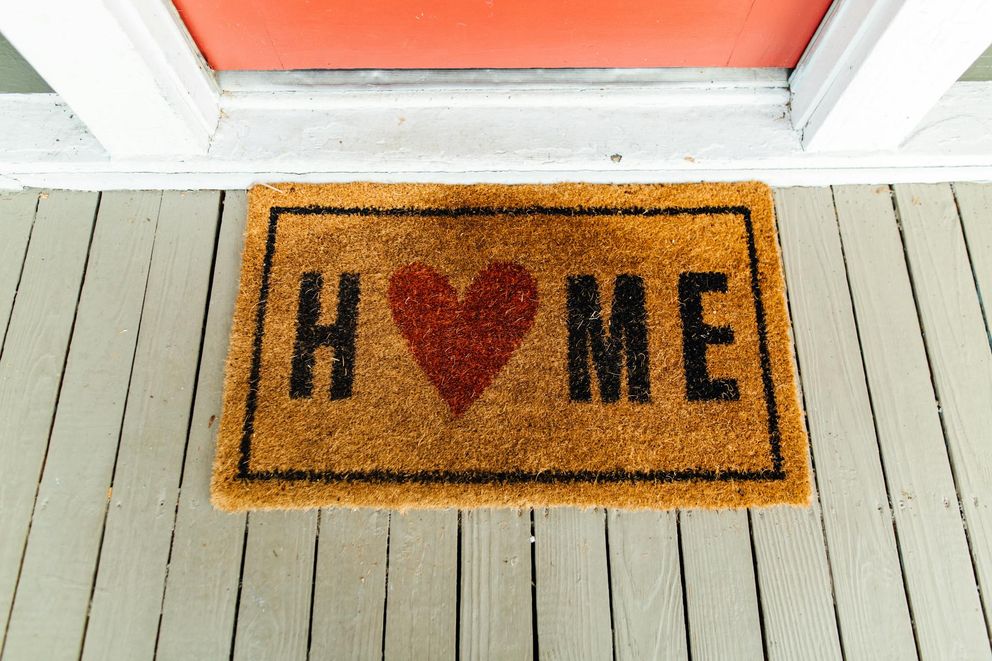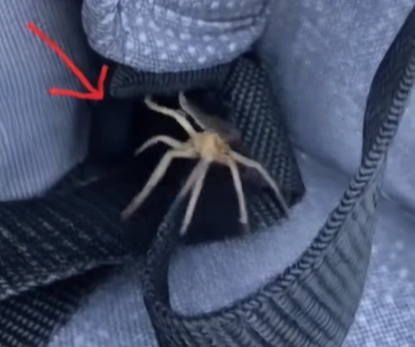After our mom passed, Dad remarried quickly. His new wife pushed my younger sister out of our childhood home, but she didn’t expect what I’d do next.
Growing up, I used to think grief had a shape. For me, it looked like the leather armchair my mom used to curl up in after dinner, reading until her eyes drooped. It looked like the chipped floral mug she refused to replace, or the laugh lines that deepened around her mouth when she sang along to old Sade records.

Now, at 30, I’ve learned that grief doesn’t have a shape. It’s a space, an empty one. And sometimes, someone else moves in and tries to redecorate it.
My name’s Britt. I live about 20 minutes from the house I grew up in, close enough to stop by, but far enough that I don’t feel the silence in the hallways. I work in marketing, live with my rescue dog Olive, and take my coffee black ever since Mom passed. It’s the way she drank hers. Little things like that feel like a rebellion against forgetting.
My little sister Emma, who’s 16, still lives with our dad. His name is Derek. He used to be the kind of guy who sang in the car and burned toast every Sunday while trying to make breakfast. But ever since Mom died, he’s been… distant.
Six months after the funeral, my dad remarried. His new wife, Monica, is 35 and so polished she looks almost airbrushed in real life. She gives off the vibe of someone who runs a boutique Pilates studio, drinks collagen smoothies for breakfast, and always seems mildly inconvenienced by anything emotional.
From the moment Monica moved in, it felt as though Mom had been erased from the story entirely. The family portraits vanished overnight, and the hand-sewn quilt that used to drape over the couch was suddenly gone. Every framed photo of Mom had been packed into a cardboard box and shoved into Emma’s room, treated like nothing more than sentimental clutter.
About a month in, Monica stood in the living room, her arms folded as if she were appraising the value of our memories.
“I think these family portraits need to go,” she said casually, like we were redecorating a rental. “It’s depressing. We need fresh energy.”

Emma didn’t say anything that day. But a week later, she told me quietly over boba tea, her eyes fixed on the melting tapioca pearls at the bottom of her cup, “It’s like Mom never existed to them. I don’t even feel like I belong here anymore.”
It broke something in me. She was a teenager, still figuring out who she was, and she was being erased along with Mom.
Then came the big announcement.
Monica was pregnant with twins.
Dad beamed like he’d just won the jackpot. Monica held up the sonogram as if it were a trophy. Emma stayed quiet through the entire dinner. She picked at her food without making eye contact.
Later, she texted me that she cried herself to sleep.
“Monica said I’m not part of this new family,” she wrote. “Like I’m just extra weight.”
The final straw came yesterday.
There hadn’t been a party — no loud music, no broken vases, and no complaints from the neighbors. Emma had spent her Saturday the way she usually did: reading in her room, sketching in her journal, and quietly trying to breathe through the heavy feeling of being forgotten.
Dad and Monica had gone away for the weekend. But apparently, they came back early.
“What’s that smell? Ugh. Has she even opened a window?” Monica’s voice rang through the hall.
Then came the unmistakable stomp of heels, followed by the slow creak of a door opening.
“Still here?” Monica said, standing in the doorway with her arms crossed.
Emma blinked. “Where else would I be?”
Monica stepped in, glancing around with disdain. “We need more space. You’re taking up an entire room, and I’m growing two humans. Not to mention all your clutter. Journals, art supplies, your mom’s dusty old boxes…”
Emma stood up, voice shaking. “That’s not clutter. That’s our life.”
“Was,” Monica said with a mocking smirk. “Your life was here. Now it’s about my family. You take up too much space, Emma, and I cannot have it happening on my watch. Not anymore.”
Emma’s face fell, and for a moment, she looked more like a child than a teenager, small and cornered.
Monica turned and yelled down the hallway, “Derek! Tell your daughter she needs to go!”
Dad’s response was barely audible. “Maybe it’s for the best, Em. Just for a little while.”
At 9 p.m., my phone lit up. Emma’s name flashed on the screen. I was halfway through folding laundry when I answered.

“Hey, Em—what’s—” But I couldn’t finish. All I could hear was her crying.
“She kicked me out,” Emma said between sobs. “She said I’m in the way. That there’s no room for me anymore…”
My heart dropped. “Emma, what are you talking about?”
“Monica. She told me to pack and leave. She said they need space for the twins. She told me I’m not a priority anymore.”
“Where are you now?” I asked, my voice tight.
“Aunt Jenna’s house,” she whispered. “Dad didn’t even say anything. He just stood there.”
I gripped the laundry basket with one hand and shut my eyes, holding back the wave of anger crawling up my spine.
“Don’t worry, Em,” I said. “I’ll handle it. I promise.”
The next morning, I pulled up in front of the house, the one Mom had filled with warmth and soft jazz on Sundays, where the scent of her vanilla candles used to greet us before the door even opened. Now it reeked of sterile citrus and staged perfection.
I rang the bell, but there was no answer.
Then I tried the handle. Fortunately, the door unlocked.
Inside, the house looked more like a home decor showroom than the place we grew up in. There was no trace of Mom — no sign of her laughter, her warmth, or even her memory.
In the kitchen, Monica stood in silk pajamas, spooning yogurt into her mouth like it was caviar.
She didn’t look up.
“Well, well,” she said with a smirk. “Look who decided to visit.”
“I’m here to pack,” I said flatly.
She raised a brow, satisfied.
“Great. You can grab Emma’s things and take them to your aunt’s. She left a lot behind.”
When moving day came, Monica’s SUV sat parked out front with the trunk open. Box after box lined the hallway, each labeled in pink Sharpie: “Skin Care,” “Books,” “Workout Gear,” and “Twin Stuff.”
Emma arrived with Aunt Jenna. Her suitcase rolled behind her, small and navy blue. She looked hesitant, her shoulders hunched, her eyes darting from the house to the boxes.
“You really did it?” she asked softly.
I smiled and wrapped an arm around her.
“Every last bag,” I said. “This is your home, Em. It always has been.”
Relief flickered across her face, but it was tangled with disbelief, like she was afraid it might all vanish if she blinked.

Monica didn’t say a word when she left. She wore huge sunglasses that covered half her face and kept her chin high as if pretending none of it had happened. As the SUV backed out, she glared through the tinted window like she was still hoping the house would burst into flames out of spite. I waved, just to be petty.
Emma and I stood in the doorway for a long time after that. The air felt lighter. Still quiet, but peaceful now.
“Do you want to keep the yellow walls?” I asked. “Mom always loved that color.”
Emma nodded. “Yeah. And the mirror in the hallway. The one that makes us look taller.”
“Deal.”
We spent the rest of the afternoon unpacking her things. I helped her put her journals back on the shelf and hung Mom’s photos back in the living room where they belonged. Emma taped one to her bedroom door, a picture of Mom laughing as she held her birthday cake. It had been her last birthday with us all together.
Seeing that photo on her door made the house feel like it finally belonged to us again.
“Do you think she’d be proud of us?” Emma asked later that night.
“I think she already is,” I said. “But just in case she missed it… let’s make sure the house looks like hers again.”
That night, we made grilled cheese and tomato soup, just like Mom used to. We lit her favorite vanilla candle and played Sade’s “Cherish the Day” in the background. Olive, my dog, snored at our feet while Emma sketched quietly at the kitchen table.
The quiet felt different that night, not heavy like before, but warm, like the house was finally breathing with us again.
There was no big celebration, no confetti or fireworks. It was just us: two girls trying to hold onto the memory of a woman who raised us with love, and had, in her own quiet way, made sure we were still protected.
For the first time in a long time, the house felt full again — not with things or furniture, but with the space we were finally allowed to claim as our own.
The quiet between us carried more comfort than any celebration ever could.



